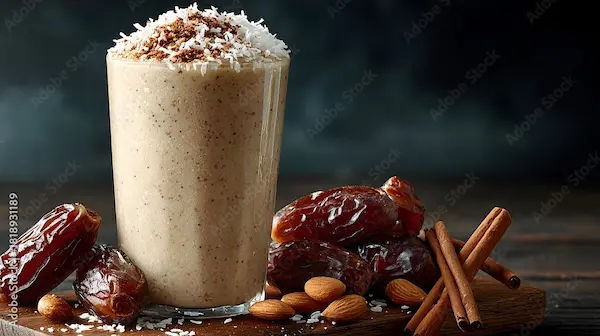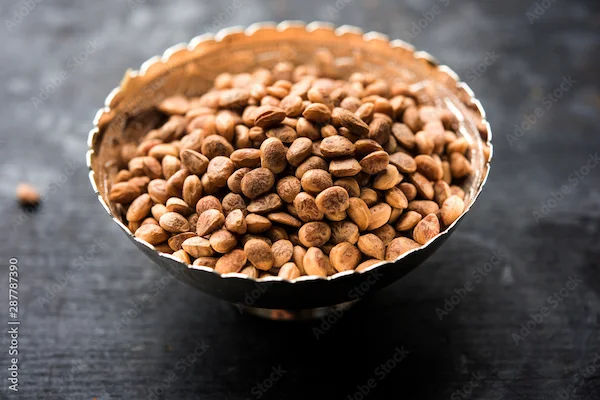8 Effective Home Remedies to Treat and Control Dry Hair Naturally
Discover eight expert-backed dry hair remedies and natural hair care tips for softer, shinier strands—plus when to see a dermatologist.

Written by Dr. J T Hema Pratima
Reviewed by Dr. Dhankecha Mayank Dineshbhai MBBS
Last updated on 13th Jan, 2026

Introduction
Dry, rough, or brittle hair can feel frustrating—and it often looks dull, frizzes easily, and breaks more. The good news is that simple, safe dry hair remedies and natural hair care habits can make a real difference. With a few changes at home, you can restore softness and shine while protecting your hair from further damage. Below, you’ll find eight expert-backed strategies, how to use them, and when to seek professional help.
What causes dry hair?
• Overwashing or harsh shampoos that strip natural oils
• Frequent heat styling (blow-dryers, flat irons, curling irons)
• Chemical processing (bleach, dye, straightening, perms)
• Sun, wind, and chlorine or saltwater exposure
• Rough handling (vigorous towel-drying, tight styles, harsh brushing)
• Dry indoor air and low humidity
• Underlying scalp or health issues (e.g., dermatitis, thyroid imbalance, nutritional deficiencies)
Dry Hair Remedies You Can Do at Home
Here are some remedies for dry hair you can do at home:
1) Wash smarter: Less often, gentler products, and lukewarm water
Why it helps: Your scalp’s natural oils (sebum) protect and soften hair. Overwashing removes these oils, making hair dry and fragile.
How to do it:
• Wash one to three times per week if your hair is dry. Curly and coily hair types often do best with less frequent shampooing.
• Choose a mild, sulphate-free shampoo. Look for words like “moisturising”, “hydrating”, or “for dry hair”.
• Use lukewarm water—not hot—to avoid stripping oils.
• Shampoo the scalp, then let the suds run through the ends briefly.
Pro tips:
• If you exercise, you can rinse with water on non-shampoo days and apply conditioner to the ends.
• If your scalp gets oily, try a gentle scalp cleanse while keeping conditioner focused mid-length to ends.
2) Condition consistently and add a weekly deep treatment
Why it helps: Conditioners replenish moisture and smooth the hair cuticle, reducing frizz and breakage.
How to do it:
• Condition every wash. Apply from mid-length to ends; leave on for two to three minutes.
• Once a week, use a richer mask or deep conditioner for 10–20 minutes.
• Ingredients to look for: glycerine, panthenol, aloe, shea butter, argan oil, coconut oil, jojoba oil, and silicones (like dimethicone) that help reduce friction and moisture loss.
Pro tips:
• For very dry ends, try “double conditioning”: a quick rinse-out conditioner in the shower, then a light leave-in (see next remedy).Consult Top Specialists
3) Leave-in conditioners and creams to lock in hydration
Why it helps: Leave-ins continue to moisturise and protect after you rinse and style.
How to do it:
• After washing and conditioning, apply a pea-sized amount of leave-in conditioner, cream, or serum to damp hair, focusing on mid-lengths and ends.
• Comb through with a wide-tooth comb to distribute evenly.
• Adjust the amount based on hair density and length to avoid a weighed-down feel.
Pro tips:
• For fine hair, choose a lightweight spray. For thick, coarse, or curly hair, a richer cream can help define and reduce frizz.
4) Pre-shampoo oiling (especially with coconut oil)
Why it helps: Applying certain plant oils before washing can reduce protein loss and mechanical damage during shampooing, leaving hair softer and less prone to breakage. Coconut oil in particular can penetrate the hair shaft and help protect it.
How to do it:
• One to two times per week, apply a small amount of oil (such as coconut, argan, or jojoba) to dry hair, concentrating on the ends.
• Leave on for 30–60 minutes (or overnight if your scalp tolerates it), then shampoo and condition as usual.
• Start with a teaspoon of oil for shoulder-length hair; adjust as needed.
Safety notes:
• Patch test if you have sensitive skin. Avoid heavy oiling on acne-prone scalps.
• If hair feels coated after, reduce the amount or duration.
5) Turn down the heat and always use heat protectant
Why it helps: Heat breaks down hair’s structural proteins and lifts the cuticle, leading to dryness and split ends.
How to do it:
• Air-dry when possible; if you blow-dry, use a cool or low setting.
• Before any heat styling, apply a heat protectant spray or cream from mid-length to ends.
• Keep hot tools below approximately 150–175°C for most hair; use the lowest effective setting.
• Limit passes with flat or curling irons and avoid daily use.
Pro tips:
• Microfibre towels or soft T-shirts reduce friction when drying. Blot—don’t rub.
6) Shield hair from sun, chlorine, and saltwater
Why it helps: UV rays, chlorine, and salt can roughen the cuticle and strip moisture.
How to do it:
• Wear a wide-brimmed hat or UV-protective cap in strong sun.
• Before swimming, wet hair with fresh water and apply a leave-in conditioner or a light coating of oil to create a barrier.
• Use a swim cap for frequent pool time.
• Rinse hair immediately after swimming; follow with a gentle shampoo and conditioner. A clarifying rinse (used sparingly) can help remove chlorine build-up.
Pro tips:
• After beach days, moisturise with a hydrating mask to restore softness.
7) Handle with care: Detangle, style, and sleep smarter
Why it helps: Gentle handling reduces mechanical damage that leads to dryness and breakage.
How to do it:
• Detangle when hair is damp and conditioned, using a wide-tooth comb starting from the ends and working up.
• Avoid tight ponytails, rubber bands, and heavy accessories that tug and cause breakage.
• Use soft scrunchies, coil hair ties, or protective styles that reduce friction.
• At bedtime, loosely braid or pineapple curls and consider a satin or silk pillowcase to minimise friction.
Pro tips:
• Regular trims (every 8–12 weeks) help remove split ends so they don’t travel up the hair shaft.
8) Add moisture to your environment and support hair from within
Why it helps: Dry indoor air and inadequate nutrition can contribute to dull, brittle hair.
How to do it:
• Use a cool-mist humidifier in dry seasons or climates to reduce moisture loss from hair and skin.
• Stay hydrated and eat a balanced diet with enough protein (hair is made of keratin), healthy fats, and iron. Include foods like eggs, fish, beans, nuts, seeds, leafy greens, and whole grains.
• Be cautious with supplements. Unless you have a diagnosed deficiency, extra biotin or vitamins are unlikely to help—and can sometimes interfere with lab tests. Check with your clinician before starting any supplement.
When to Seek Professional Help?
See a dermatologist or your primary care clinician if:
• You notice sudden or patchy hair changes, significant shedding, scalp itching, scaling, pain, or redness.
• You have a known skin condition (e.g., eczema, psoriasis) or medical condition (e.g., thyroid disorder) and your hair has become very dry or brittle.
• Home care doesn’t help after six to eight weeks. A professional can rule out medical causes, adjust your routine, and recommend treatments.
A Simple Routine you can Start Today
• Wash: Two to three times per week with a gentle, hydrating, sulphate-free shampoo.
• Condition: Every wash; add a weekly deep-conditioning mask.
• Protect: Leave-in conditioner daily; heat protectant before any hot tools.
• Repair: Pre-shampoo oiling one to two times per week as needed.
• Prevent: Hat in harsh sun; pre-wet and protect before swimming; rinse after.
• Handle gently: Microfibre towel, wide-tooth comb, loose styles, regular trims.
• Environment and lifestyle: Humidifier in dry months; balanced diet and hydration.
About Natural Hair Care and Expectations
Natural hair care approaches can noticeably improve feel, shine, and manageability—but results build over weeks. Keep expectations realistic, introduce one change at a time, and track what works for your hair type. If a product irritates your scalp or causes breakouts, stop using it and consult a professional.Consult Top Specialists
Consult Top Specialists
Dr. Kavitha Killaparthy
Dermatologist
23 Years • MBBS,DIPLOMA(DERMATOLOGY,VENEREOLOGY,LEPROSY)
Hyderabad
JDS Skin & Hair Clinic, Hyderabad
Dr. Mayuri Jain
Dermatologist
11 Years • MBBS, MD Dermatology , Venereology & Leprosy
Delhi
Dr Mayuri Jain Clinic, Delhi

Dr Ekansh Shekhar
Dermatologist
10 Years • MBBS MD
Lucknow
Apollo Clinic Hazratganj, Lucknow

Dr. Swathi Thadishetti
Dermatologist
14 Years • MBBS, MD (Dermatology, Venereology & Leprosy)
Karim Nagar
RKD Hospital, Karim Nagar
Dr.j Girishma
Dermatologist
6 Years • MBBS MD DERMATOLOGY
Bengaluru
Apollo Medical Center, Marathahalli, Bengaluru
Consult Top Specialists
Dr. Kavitha Killaparthy
Dermatologist
23 Years • MBBS,DIPLOMA(DERMATOLOGY,VENEREOLOGY,LEPROSY)
Hyderabad
JDS Skin & Hair Clinic, Hyderabad
Dr. Mayuri Jain
Dermatologist
11 Years • MBBS, MD Dermatology , Venereology & Leprosy
Delhi
Dr Mayuri Jain Clinic, Delhi

Dr Ekansh Shekhar
Dermatologist
10 Years • MBBS MD
Lucknow
Apollo Clinic Hazratganj, Lucknow

Dr. Swathi Thadishetti
Dermatologist
14 Years • MBBS, MD (Dermatology, Venereology & Leprosy)
Karim Nagar
RKD Hospital, Karim Nagar
Dr.j Girishma
Dermatologist
6 Years • MBBS MD DERMATOLOGY
Bengaluru
Apollo Medical Center, Marathahalli, Bengaluru
More articles from General Medical Consultation
Frequently Asked Questions
1) What causes dry hair in the first place?
Common causes include overwashing, harsh shampoos, frequent heat styling, chemical treatments, sun/chlorine exposure, and rough handling. Dry indoor air and some health issues or medications can also contribute. Addressing these triggers is the first step in effective dry hair remedies.
2) How often should I wash dry hair?
Many people with dry hair do well washing 1–3 times per week. Curly/coily hair often benefits from even less frequent shampooing. Focus shampoo on the scalp, use lukewarm water, and condition every time.
3) Do natural oils like coconut oil really help?
Yes—used as a pre-shampoo treatment, coconut oil can help reduce protein loss and protect hair during washing. Apply a small amount to mid-lengths and ends for 30–60 minutes, then shampoo and condition. If your hair feels heavy, reduce the amount or try lighter oils like argan or jojoba.
4) Can my diet affect how dry my hair is?
Severe deficiencies in protein, iron, or essential fatty acids can affect hair quality. A balanced diet with adequate protein and healthy fats supports overall hair health. Supplements are not usually necessary unless your clinician finds a deficiency.
5) Are “natural hair care” products always safer or better?
“Natural” is not a guarantee of safety or effectiveness. Some essential oils or plant extracts can irritate the scalp. Choose fragrance-free or hypoallergenic options if you’re sensitive, patch test new products, and focus on proven habits: gentle cleansing, regular conditioning, heat protection, and sun/swim protection.




